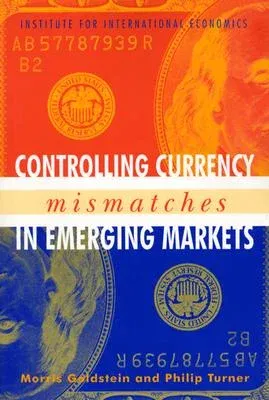Morris Goldstein
(Author)Controlling Currency Mismatches in Emerging MarketsPaperback, 25 April 2004

Qty
1
Turbo
Ships in 2 - 3 days
Only 1 left
Free Delivery
Cash on Delivery
15 Days
Free Returns
Secure Checkout

Print Length
192 pages
Language
English
Publisher
Peterson Institute for International Economics
Date Published
25 Apr 2004
ISBN-10
0881323608
ISBN-13
9780881323603
Description
Product Details
Authors:
Book Format:
Paperback
Country of Origin:
US
Date Published:
25 April 2004
Dimensions:
22.91 x
15.39 x
0.99 cm
ISBN-10:
0881323608
ISBN-13:
9780881323603
Language:
English
Location:
New York
Pages:
192
Weight:
272.16 gm